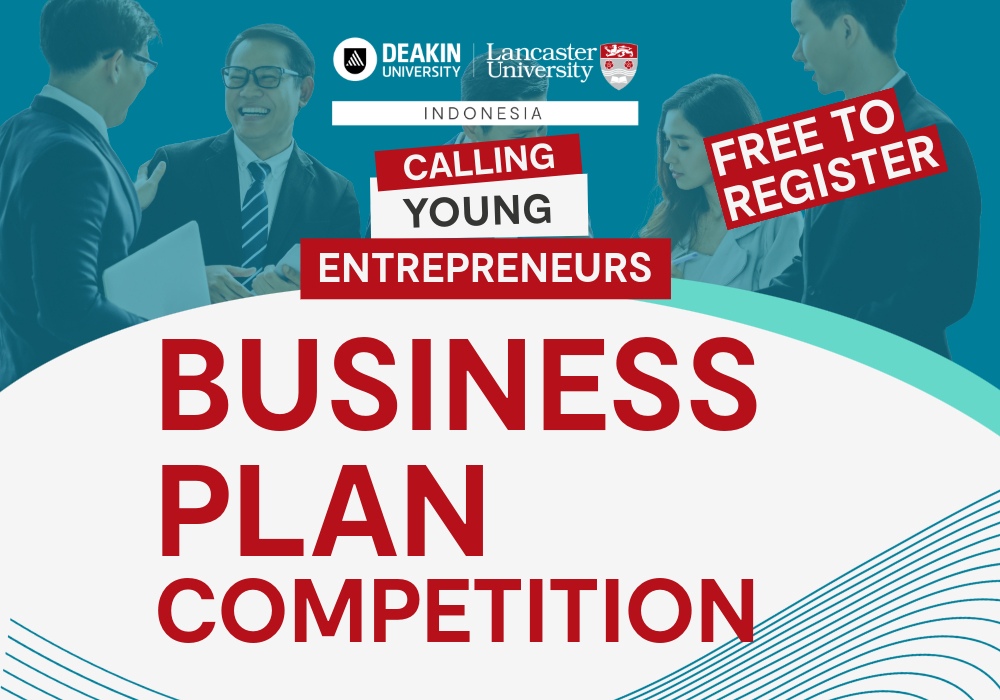Click here to register your team.

“Shaping the Future: Youth-Driven Business Solutions”
Encourage high school students to develop innovative, sustainable business ideas that address real-world challenges while honing their entrepreneurship, critical thinking, and presentation skills.
11 November – 17 December: Registration and Proposal of Business Plan uploaded
18 December – 20 December: Proposal selection
20 December: Announcement of the best of 5 proposals to be continued to the final step
6 January 2025: Technical Meeting
16 January 2025: Final Presentation at DLI Campus
Each team must submit a digital copy of their written proposal by the deadline to marketing@dli.ac.id in PDF with the email title “school name_DLI Business Plan Competition” The document should follow the provided structure and not exceed 13 pages.
For teams with students from multiple schools, please put “Multiple Schools_DLI Business Plan Competition” and list the schools of the members in the email.
Preliminary
Final Round
Note
Business plans and presentations done in English will get an extra point.
More Information
For more information or any inquiries, feel free to contact us on WhatsApp at +6285135150099
Prize for the winners:
MAP is a voucher that can be used in 150+ brands in Indonesia.
Gifts for all participants:
Participants will develop and present a business plan that reflects the theme of shaping the future through youth-driven, socially impactful business solutions. Each team will pick one category listed below and prepare a comprehensive business proposal, that communicates their idea. The top 5 teams will have the opportunity to present their prototype in Deakin University Lancaster University Indonesia Campus and deliver a final presentation to a panel of judges. The Prototype can be a physical, digital, or conceptual product.
Categories:
Students create business plans that leverage digital tools (for example, digital tools in analytics or e-commerce) to solve sustainability challenges. This theme encourages creativity while aligning with global goals like reducing carbon footprints or promoting eco-friendly products.
With a focus on finance and accounting, this theme could encourage students to develop solutions that help people (particularly youth) better manage personal finances through technology. Business plans could involve budgeting apps, investment platforms, or education-based services.
With cyber security and computer science in mind, this theme invites students to design a business plan for a product or service that tackles cyber security for small businesses or families. This could be anything from an educational platform to a simple device or service enhancing online security.
In this theme, students create business plans for e-commerce solutions that use data analytics or artificial intelligence to improve customer experience, such as predictive shopping or personalized marketing. This aligns well with business analytics, commerce, and computer science.
This theme can encourage students to focus on local community issues, such as creating businesses that address specific needs within their schools or neighborhoods. Ideas could include local commerce solutions, accessible finance tools, or tech-driven initiatives to help small businesses.
The following recommended structure for your business plan:
Proposals will be evaluated based on these key criteria: